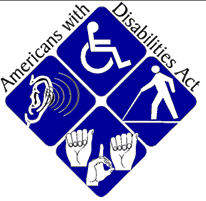Employers Can Learn from Paula Deen’s Mistakes
August 7th, 2013 Earlier this summer, TV chef Paula Deen was known more for her teary performances on talk shows than for her down-home cooking on her own show, after she was accused by an employee of using racial slurs. Deen was subsequently dropped by the Food Network, as well as several other companies with which she’d held endorsement deals.
Earlier this summer, TV chef Paula Deen was known more for her teary performances on talk shows than for her down-home cooking on her own show, after she was accused by an employee of using racial slurs. Deen was subsequently dropped by the Food Network, as well as several other companies with which she’d held endorsement deals.
Employers can take a lesson from the fallout that Deen has experienced since her employee’s lawsuit came to light. Sexually explicit or racially charged language has no place in the business world, but sadly, it is not unheard of. Now is a good time to re-establish rules and reinforce them with your employees–and to take them to heart yourself, if necessary.
Watch your language: Racial slurs, sexual comments and biased language should not be allowed, period. From the boss on down, establish a zero-tolerance policy, and enforce it. Doing otherwise opens your company up to liability.
Show respect: No matter whom you are interacting with, pay attention to your behavior. Your words, actions and body language might make others uncomfortable, which could create a hostile working environment. Don’t assume that just because someone is of your gender and race that you can use language with him or her that demeans those who are not. The plaintiff in Deen’s case is a Caucasian woman.
Protect your brand: You’ve worked hard to create a company with a good reputation, but accusations of racism, sexism or intolerance can turn off both your current clientele and prospects. Consumers vote with their dollars, and word of bad behavior can bring about disastrous results.
Treating everyone fairly, keeping harmful language out of the workplace and creating a positive, respectful organizational culture can only strengthen your company. It makes it a better place to work. And it’s the right thing to do.









